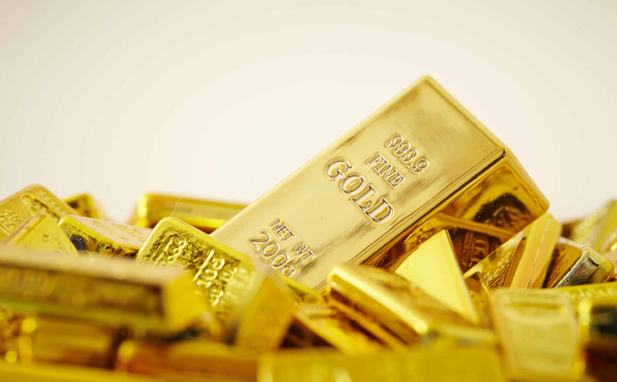As bright as gold is, so are the earnings. But wait, have you met the smsf tax return accountant? As the world markets continue to be volatile in 2025, Australian SMSF investors are increasingly looking to gold as a secure and reliable investment. Investments in gold mining businesses, gold ETFs, or real bullion provide an alluring hedge against market volatility and inflation. But here’s the catch: if you don’t handle your gold investments wisely, any earnings you make from selling them could be subject to capital gains tax (CGT).
If you are an SMSF trustee looking to grow the amount of gold in your portfolio while maintaining your gains in the right place, this guide will explain to you how to handle CGT in 2025 and comply with ATO laws.
Why Gold is a Popular Investment for SMSFs in 2025
Let’s first examine the reasons why gold is becoming more popular in SMSFs before moving on to the tax aspects of things:
- Inflation Hedge: In 2025, inflation fees are unpredictable, making gold a solid investment.
- Diversification: Gold is a good diversifier because it’s uncorrelated with stocks.
- Tangible Asset: Physical gold offers a level of security that digital or paper-based assets don’t.
- Increased Accessibility: ETFs, bullion, and allotted storage make gold investments easier than ever for SMSFs.
But, with returns come responsibilities, especially when the ATO is watching.
Capital Gains Tax (CGT) and SMSFs: A Quick Refresher
When you sell an asset for more than you originally paid for it, you must pay capital gains tax (CGT). In the context of SMSF:
- CGT applies to all capital gains from the sale of investments, including gold.
- Although the CGT rate for SMSFs is normally 15%, it may be reduced to 10% if the asset is held for more than a year.
- Depending on the percentage of assets used to fund pension payments, all or a portion of the capital gains may be tax-free if the SMSF is in the pension phase.
Popular Gold Investment Options for SMSFs
Before managing CGT, it’s essential to understand how your SMSF can invest in gold. The CGT implications may vary depending on the investment vehicle:
- Physical Gold Bullion
- Coins or bars stored securely in an approved vault.
- As a collectible asset, it must pass the single purpose test and the SMSF investing plan.
- Gold ETFs (Exchange Traded Funds)
- Traded like shares on the ASX (e.g., GOLD,).
- Easily liquidated; CGT applies upon sale.
- Gold Mining Stocks
- Northern Star Resources or company shares.
- Share trading is subject to the standard CGT regulations.
- Managed Funds or Trusts
- Exposure to gold via a variety of commodity holdings.
- The rebalancing of assets or redemption is a taxable event.
Top Strategies to Manage CGT on Gold Investments in 2025
Here’s how SMSFs can legally minimise CGT on gold in the 2025 financial year:
1. Hold Gold Assets for Over 12 Months
The golden rule? Hold your gold long-term.
SMSFs are eligible for a 33.33% CGT discount, which lowers the CGT rate from 15% to 10%, provided they hold onto gold-related investments for more than a year.
Example:
An SMSF sells gold ETF units for a $30,000 gain after 18 months. CGT before discount: $4,500 (15%). With discount: $3,000 (10%).
2. Use Retirement Phase Strategies
Your SMSF may be fully or partially in the pension (retirement) phase, which results in significant modifications to the CGT legislation.
- Assets used to pay for a retirement phase pension have tax-free capital gains.
- If the fund is in both the accumulation and retirement phases, there may be some exclusions (proportional method).
Tip: For the best CGT benefits, divide up pension assets or use the proportionate technique.
3. Rebalance Before June 30th Thoughtfully
Many SMSFs rebalance their portfolios at the end of the financial year. If you’re planning to sell gold assets, consider the timing:
- If in loss, realise before June 30 to offset other gains.
- If in gain, defer sale until after July 1 to push the tax into the next financial year.
4. Offset Gains With Capital Losses
SMSFs can offset growth from gold investments with losses from other assets like poor-performing shares or property.
Just ensure that:
- Actual loss occurs.
- Disallowed related party transactions did not cause the loss.
5. Comply With the Sole Purpose Test
The SMSF sole purpose test states that every gold investment must be made with the express intent of generating retirement benefits.
If gold bullion is held, it must be stored securely, insured, and not for personal use. Any misuse may result in penalties, disqualification, and possible CGT consequences.
6. Avoid Related Party Transactions
SMSFs cannot buy gold from linked parties like oneself, family, or businesses without exemptions.
Buying gold coins from your collection and transferring them to your SMSF may breach rules and trigger tax liabilities.
7. Accurate Record-Keeping and Valuations
Ensure you:
- Keep all receipts for purchases and sales.
- Keep your gold assets’ values up to date every year
- Make sure to write down any CGT events exactly in your fund’s financial statements
Accurate records = accurate CGT calculations.
Recent ATO Focus Areas in 2025
The ATO monitors SMSF investments in collectibles like gold in 2025. Important compliance areas:
- Proof of safe storage
- Independent assessments
- Related party purchases
- Separating from personal assets
Stay compliant to avoid penalties and additional CGT burdens.
When to Talk to an SMSF Tax Accountant
Managing CGT on gold sounds simple in theory—but real-world execution is another story. SMSF trustees should consult a qualified smsf tax return accountant.
- Confirm CGT eligibility
- Structure asset sales
- Calculate partial pension phase exemptions
- Identify and apply relevant CGT discounts
Need smsf tax return accountant for Advice?
Our skilled SMSF tax accountants at LTE Tax can help you set up your gold assets in a smart way, lower your CGT, and make sure you follow the rules set by the ATO at every step.
Book your free consultation today!
Conclusion
In conclusion, gold is still a solid option for SMSF portfolios in 2025. Even while gold is alluring, taxes can ruin your gains, particularly if you don’t take proactive steps to avoid CGT.
SMSFs can get the golden rewards of their investments without giving the ATO too much by knowing the tax laws, managing assets strategically, utilising the retirement phase, and consulting with a knowledgeable tax advisor.




